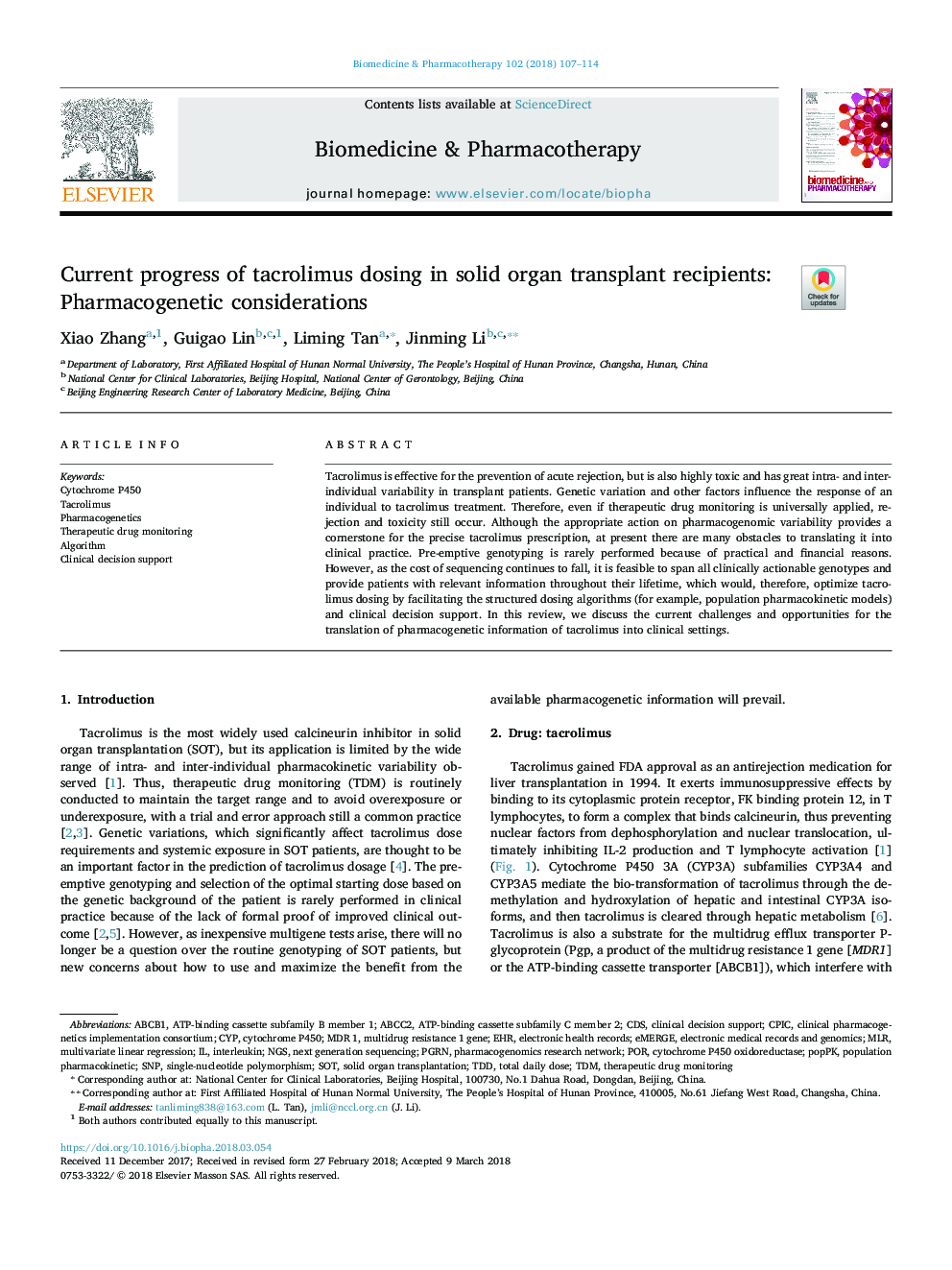| Article ID | Journal | Published Year | Pages | File Type |
|---|---|---|---|---|
| 8524924 | Biomedicine & Pharmacotherapy | 2018 | 8 Pages |
Abstract
Tacrolimus is effective for the prevention of acute rejection, but is also highly toxic and has great intra- and inter-individual variability in transplant patients. Genetic variation and other factors influence the response of an individual to tacrolimus treatment. Therefore, even if therapeutic drug monitoring is universally applied, rejection and toxicity still occur. Although the appropriate action on pharmacogenomic variability provides a cornerstone for the precise tacrolimus prescription, at present there are many obstacles to translating it into clinical practice. Pre-emptive genotyping is rarely performed because of practical and financial reasons. However, as the cost of sequencing continues to fall, it is feasible to span all clinically actionable genotypes and provide patients with relevant information throughout their lifetime, which would, therefore, optimize tacrolimus dosing by facilitating the structured dosing algorithms (for example, population pharmacokinetic models) and clinical decision support. In this review, we discuss the current challenges and opportunities for the translation of pharmacogenetic information of tacrolimus into clinical settings.
Related Topics
Health Sciences
Medicine and Dentistry
Oncology
Authors
Xiao Zhang, Guigao Lin, Liming Tan, Jinming Li,
